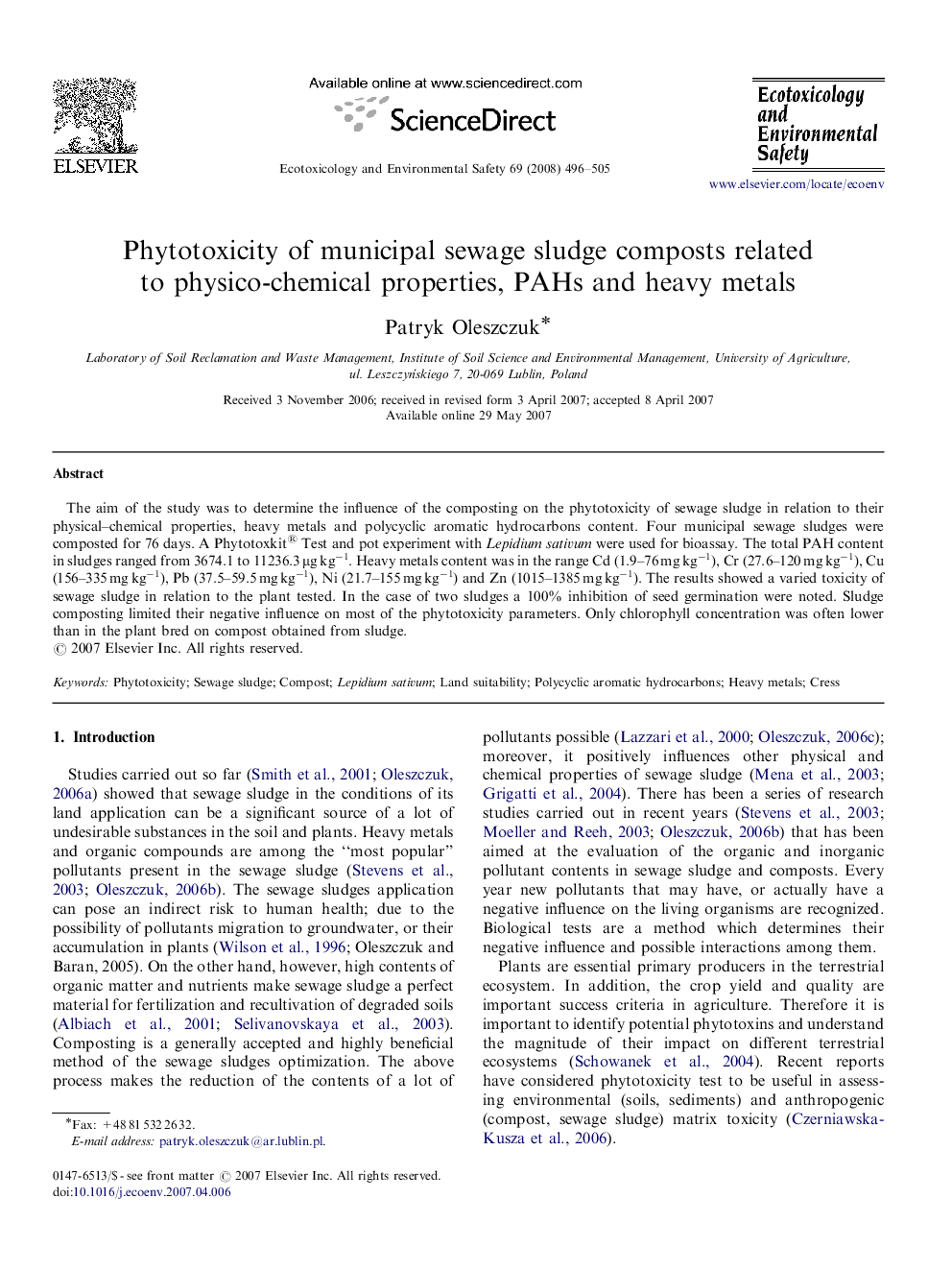| Article ID | Journal | Published Year | Pages | File Type |
|---|---|---|---|---|
| 4422300 | Ecotoxicology and Environmental Safety | 2008 | 10 Pages |
Abstract
The aim of the study was to determine the influence of the composting on the phytotoxicity of sewage sludge in relation to their physical-chemical properties, heavy metals and polycyclic aromatic hydrocarbons content. Four municipal sewage sludges were composted for 76 days. A Phytotoxkit® Test and pot experiment with Lepidium sativum were used for bioassay. The total PAH content in sludges ranged from 3674.1 to 11236.3 μg kgâ1. Heavy metals content was in the range Cd (1.9-76 mg kgâ1), Cr (27.6-120 mg kgâ1), Cu (156-335 mg kgâ1), Pb (37.5-59.5 mg kgâ1), Ni (21.7-155 mg kgâ1) and Zn (1015-1385 mg kgâ1). The results showed a varied toxicity of sewage sludge in relation to the plant tested. In the case of two sludges a 100% inhibition of seed germination were noted. Sludge composting limited their negative influence on most of the phytotoxicity parameters. Only chlorophyll concentration was often lower than in the plant bred on compost obtained from sludge.
Keywords
Related Topics
Life Sciences
Environmental Science
Environmental Chemistry
Authors
Patryk Oleszczuk,
